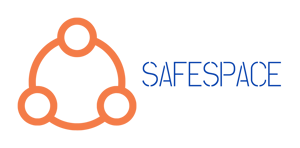SafeSpace
Online Counselling
We're the best in our field, and it's all thanks to the incredible relationships we've formed with our clients. SafePlace counselling is invested in developing a personal connection with each and every one of our clients, by providing quality service and being available to you 24/7. Get in touch with us when you're ready to learn more; we can't wait to meet you!
Severity of alcohol and/or drug relapses

Substance dependency refers to a maladaptive pattern of substance use that manifests regularly and results in negative outcomes and consequences (Swartz, de la Rey, Duncan & Townsend, 2011). There are several possible reasons that people abuse AOD, such as an attempt to relieve suffering and to experience immediate pleasure (Leach & Kranzler, 2013). There are many types of substances that an individual can become dependent on, namely: central nervous system depressants (cannabis, heroin, benzodiazepine), psychostimulants (caffeine, nicotine, amphetamines) and psychedelics (hallucinogenic, mushrooms, acid, ecstasy) (Fisher & Harrison, 2013).
Substance dependency is a growing epidemic, as difficulties surrounding the disorder are not easily overcome. In fact, as indicated in the World Drug Report (2015), 29.5 million people of the world adult population is dependent on alcohol and/or other drugs (AOD). Although many treatment services and approaches have been developed throughout the years to address this epidemic, there are still high levels of substance dependency and reoccurring relapses after being discharged from formal treatment services. As emphasised by the United Nations Office on Drugs and Crime (UNODC, 2018), there is no one cause for substance dependency relapse, but rather “a combined net of challenges that individuals are often exposed to after receiving formal treatment that are defined as predictors for relapse.” According to the Gorski model of relapse (Gorski & Miller, 1984), as depicted in the revised journal of Miller and Harris (2000), relapses of substance dependent service users after formal treatment are linked to factors such as failure to maintain coping mechanisms in trigger situations, continuous negative substance abuse thoughts, boredom due to unemployment, interpersonal problems, failure to avoid substance use environments and unsupportive family structures.

